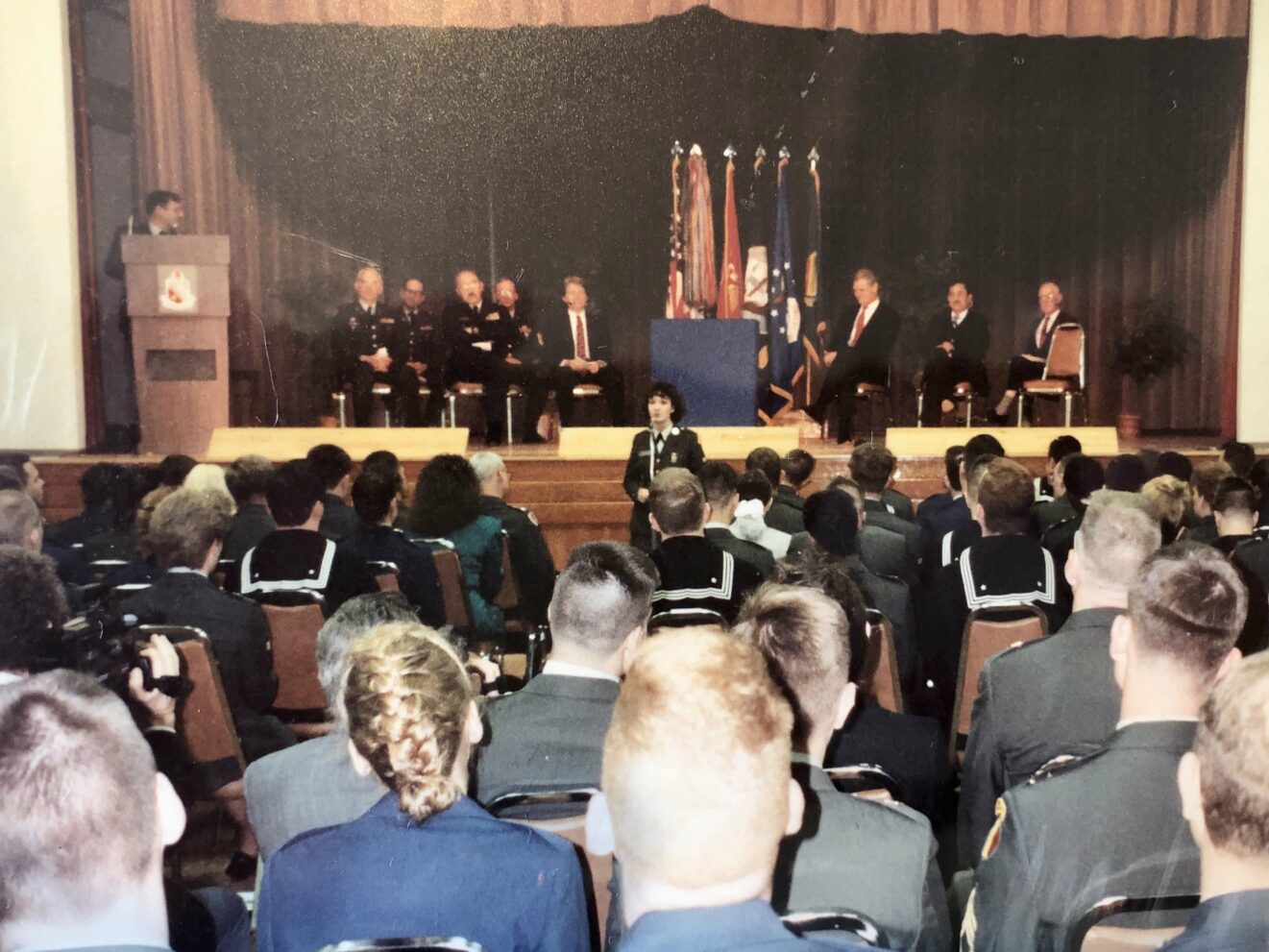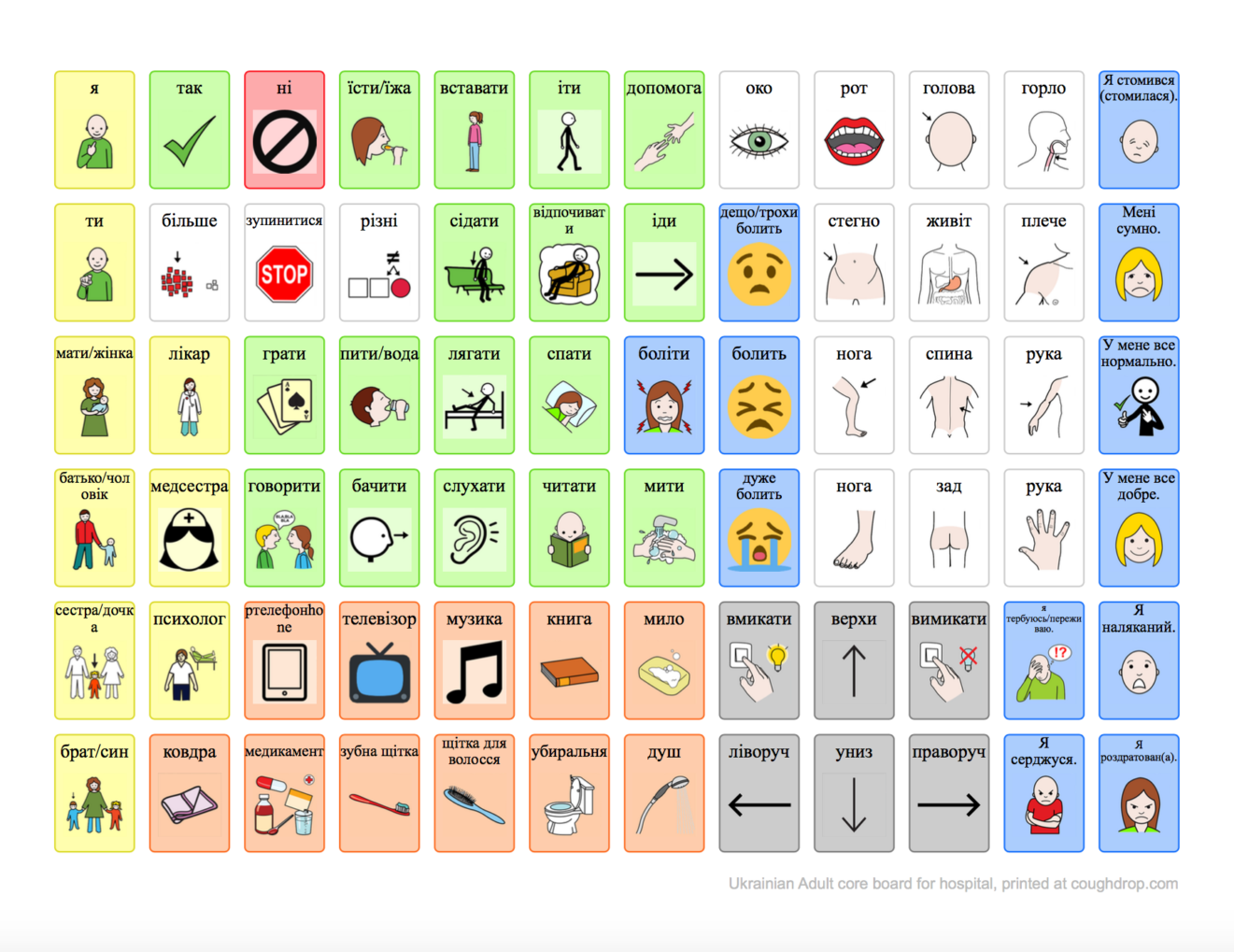As Disability Awareness month comes to a close, my mind has been completely occupied by thoughts of those with disabilities during war time and those who acquire disabilities as a result of war. As tensions increased between Russia and Ukraine in late February, I became quite uneasy about the signs of what was coming.
I realize that these feelings are a complicated mix of identity and life experience, namely, I am many people at once: a mother of a child with multiple disabilities, a professional working alongside people who have disabilities, and an Army veteran who served during the Cold War.

In the early 1990’s I was trained as a “Voice Interceptor” or what is now called a cryptologic linguist for the Russian language. This photo of me was taken in 1991 where I gave a speech in Russian recalling current events as we witnessed them – such as the Persian Gulf War and the attempted Russian coup – and thanking the skilled instructors who would prepare me for my future duty stations in Europe.
My heart breaks at the tragedy unfolding in Ukraine today. Though I have read that many veterans have left for Ukraine to volunteer, that option is not available to me. I do not have medical skills to offer. I do not have current weapons training.
What I can offer through BridgingApps are resources about communication technologies that may be useful for supporting the humanitarian effort.
With the help of a speech therapist skilled in Augmentative and Alternative Communication or AAC, Russian and Ukrainian native speaker volunteers, physical and occupational therapists and mental health experts, we are creating free printable communication boards that can be downloaded. AAC describes multiple means to support communication such as the use of pictures, symbols, or digital tools, to help someone who is temporarily or permanently unable to speak or write due to injury, illness or a genetic condition. Such low tech boards can be used to facilitate communication between those fluent in Ukrainian and Russian and English speakers, such as social workers, host families, health care professionals, therapists, food bank workers, and others who are supporting refugees and/or displaced persons.

The free communication boards can be downloaded at the links below:
We are also compiling and will publish a list of apps that are available in the Russian and Ukrainian languages and will keep this list updated. If there is a communication board that you would find useful, please let us know. We will also create additional resources, such as videos to help you create your own boards.
I am hopeful for a peaceful resolution as soon as possible, but until then, let’s continue to support organizations that do critical work to support people with disabilities.

